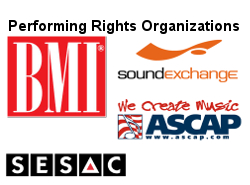If you are going to have a business you will need insurance. Pole Studios and the like have a greater need for insurance. You need insurance as your lease probably requires it. You will want it to protect you if someone is injured or there is physical damage to your premises. Even as an independent Pole Dance Instructor you need insurance.
 Insurance cost will be determined by several factors including the physical size of the facility, your annual revenue, type of equipment and services offered. If you also do training or pole parties off-site that will have to be included or done a as rider to the policy. As important it is to know what is covered by your insurance policy, it can be more important to know what is not covered. You may find you will need to have three separate policies. One insuring the premises and another for liability and yet another as an instructor.
Insurance cost will be determined by several factors including the physical size of the facility, your annual revenue, type of equipment and services offered. If you also do training or pole parties off-site that will have to be included or done a as rider to the policy. As important it is to know what is covered by your insurance policy, it can be more important to know what is not covered. You may find you will need to have three separate policies. One insuring the premises and another for liability and yet another as an instructor.
There are many insurance companies. Not all of which can offer insurance to pole studios or fitness centers. Each insurance company also writes their policies differently so you will need to do your own due diligence to be sure you are getting the coverage your business requires. Most major and some minor insurance companies offer insurance for fitness studios and gyms. That is not normally coverage for many activities and equipment of a pole studio! You do not need a company that specializes in pole dancing but make sure the coverage is there even if it is a major company. Some companies such as Nationwide Insurance classify pole dance the same as a Gymnastics Studio. The difference we are told is because of aerial movements as opposed to movements only on the ground.
When you look at coverage realize this. If someone has a permanent injury during a pole class and successfully sues for $250,000 and your insurance policy includes coverage for that specific type of injury for $50,000, guess who comes up with the extra $200,000? The point is a cheap policy with lower coverage is just a cheap policy. It may not protect you when its needed. Would you buy a new Lexus for $50,000 and only get insurance for damage of $2000? Of course not. You need to protect your business, your employees, your students and even yourself. Many think making your business a corporation completely protects from all lawsuits and legal responsibilities. That is untrue. If you are found to be responsible directly or indirectly than you can also be held financially responsible. A bargain insurance policy is not a bargain.
If you are leasing or sharing space from a fitness center, gym or another facility, that usually does not exclude you from carrying your own insurance. You will need to check with their insurance agent or read their actual policy to see what if any coverage is carried-over to you.. At the least you will want to carry general liability coverage for yourself regardless. This also carries to teaching pole at your home or a student’s home.
Liability Coverage
- General Liability: bodily injury & property damage your studio may responsible for. That can include equipment, products, operations or even while walking in your facility. If someone trips while walking through your doorway, general liability will cover this.
- Professional liability: This deals with any injuries or damage caused by yourself in the role of pole instructor or employees of yours. For instance, if while teaching a pole move a student gets injured or contracts some medical condition. You may need either additional coverage or a rider for any pole instructors or fitness trainers as 1099 sub-contractors. You may wish to elect to only hire contractors that have their insurance policy. Be sure then to actually see their Certificate of insurance in writing.
- Personal and advertising injury coverage, which covers copyright infringement, libel and slander
Property Coverage
- This covers damage to your studio facility itself. The damage could be caused by fire, theft or vandalism.
- Weather conditions vary by geographic area. Flooding may require a separate policy. Weather including wind may be additional coverage or a no cost inclusion
- Since 9/11 insurance companies will offer you Terrorism Insurance. Like other forms of insurance the cost is based on risk. A low risk location may be less than fifty dollars. A high risk in a major city could be several times that. You can purchase it or choose to opt-out.
- If you perform pole parties or teach at someone’s home you will need specific coverage. Setting up a pole and damaging you can be held responsible, waiver or no waiver.
Additional Coverage
There are several areas of additional insurance coverage that a pole studio may want to consider.
- Participant liability and accidental medical: If you have or sponsor pole competitions, this covers the participants. You will need to question your insurance agent whether this is needed or included. Normally this coverage protects yourself, your staff and participants while traveling to/from the competition as well as the event itself. This may apply for pole parties as well.
- Spectator Coverage: Again, if you hold or sponsor pole competitions. This provides liability only coverage for spectators during the event for injuries or property damage.
- Supplemental insurance: This is for liability coverage that is outside the scope of the main policy. If you provide services such as tanning, massages, skin care, saunas or anything else beyond the normal policy coverage you will need this. As insurance costs ever increase, you can see why some of the additional services are no longer offered at not only pole studios but fitness centers & gyms.
- Workers Compensation may be needed like any business owner.
BOP
BOP stands for Business Owners Policy. It is an insurance package for a small business that provides a type of umbrella policy often at reduced cost. If you have a small business this may be an option for you. Still, there will be specific coverage needed for every pole studio to make BOP work for you. Also as mentioned above, you need to inquire specifics as to what is not included. Two pole studios we spoke with had BOP policies and after we spoke they found they needed to change to the policies as outlined above. Poles and pole dancing was outside of the BOP coverage for them. The cost to add all required coverage to the BOP policies would have made their policies more expensive. While licensed insurance agents are supposed to assist you with getting the coverage you need, most have little knowledge about pole dancing and pole fitness. You may have to provide some education to help them, help you. Having the wrong coverage can leave you and your company exposed.
Pole Instructor Coverage
Whether am independent instructor or teaching at your own studio owner you should have instructor insurance. It should be included in an overall studio policy but it may not. There are some that have fitness trainer insurance (obtained either independently or through organizations like AFAA, ACE, etc.) but these do not cover pole dancing. The reason given is often that of being more than six months off the ground and inverted.
There are many insurance companies that can provide pole dance instructor insurance. You do not need one directly involved in the pole industry. There are some agents selling pole instructor insurance with limited coverage well below what is needed in the real world. These typically carry lower premiums but should you have a claim may still find yourself seriously debt. Always compare coverage on all policies. You also like all insurance policies confirm how long they have been in service.
You will find some conditions placed on instructor policies such as:
- Adequate Matting/Padding being utilized
- No Alcohol use allowed
- Instructor always present to spot for students
- Maximum height to be allowed
Some pole instructor policies contain clauses not allowing inverts or high heel shoes even though they are sold specific to the pole industry. In addition to poling, there normally will be additional riders required for things like hoops, silks, other aerial moves or fitness instruction including yoga, zumba, etc. As most pole dance certifications are not fully recognized by government or international sanctioning bodies, they also rarely have any requirement for instructor insurance. A small few ask for a fitness certification like ACE, AFAA, NASM, etc. Many do now require CPR and possibly AED certification.
Your Risk
 You need to be proactive to decrease your exposure to liability. Many think a signed waiver is all you need. That is totally false. If someone is injured in your studio there is nothing including a signed waiver to keep a lawsuit from happening. A waiver is simply that you notified that some risk exists. Many successful lawsuits were against facilities with signed waivers.
You need to be proactive to decrease your exposure to liability. Many think a signed waiver is all you need. That is totally false. If someone is injured in your studio there is nothing including a signed waiver to keep a lawsuit from happening. A waiver is simply that you notified that some risk exists. Many successful lawsuits were against facilities with signed waivers.
You also should be sure to have a valid certification in the area you or employees are working in. Whether yourself or someone else you should always have someone on premises with CPR and AED ( defibrillator) certification. That means you may need to invest in AED equipment and keep it maintained.
Any all equipment needs to be inspected regularly. Many pole studios we have found have not performed any type of real inspection to their poles since they were installed. Equipment failure especially from lack of maintenance is a classic lawsuit. It takes only one issue, one time to force you out of business. Check for slippery floors, proper lighting and every other potential accident. Accidents do happen but if you perform proper checks, inspections & maintenance then not only do you reduce the chances of accidents but have a defense when accidents happen.
 Music Licensing: International law varies. In the USA if you will be playing licensed music (BMI,ASCAP, SESAC & SoundExchange in the USA, SOCAN in Canada, PPL in UK) you must pay a public performance fee to the organizations. The pole studio owner is responsible for the fees regardless of who or how the music was brought into the studio. It is a myth that if you purchased a CD of music you can use it for pole classes or performances.
Music Licensing: International law varies. In the USA if you will be playing licensed music (BMI,ASCAP, SESAC & SoundExchange in the USA, SOCAN in Canada, PPL in UK) you must pay a public performance fee to the organizations. The pole studio owner is responsible for the fees regardless of who or how the music was brought into the studio. It is a myth that if you purchased a CD of music you can use it for pole classes or performances. Your other option is to use License Free music. These will not be the hits but original music created specifically for this purpose. You pay a higher cost for the CD’s, Internet channel or service but it can be less expensive than the public performance fees. Realize that if you play one song from one of the performance rights organizations you are already responsible for the fees. The last option is music from local bands & musicians.
Your other option is to use License Free music. These will not be the hits but original music created specifically for this purpose. You pay a higher cost for the CD’s, Internet channel or service but it can be less expensive than the public performance fees. Realize that if you play one song from one of the performance rights organizations you are already responsible for the fees. The last option is music from local bands & musicians.
 Insurance cost will be determined by several factors including the physical size of the facility, your annual revenue, type of equipment and services offered. If you also do training or pole parties off-site that will have to be included or done a as rider to the policy. As important it is to know what is covered by your insurance policy, it can be more important to know what is not covered. You may find you will need to have three separate policies. One insuring the premises and another for liability and yet another as an instructor.
Insurance cost will be determined by several factors including the physical size of the facility, your annual revenue, type of equipment and services offered. If you also do training or pole parties off-site that will have to be included or done a as rider to the policy. As important it is to know what is covered by your insurance policy, it can be more important to know what is not covered. You may find you will need to have three separate policies. One insuring the premises and another for liability and yet another as an instructor. You need to be proactive to decrease your exposure to liability. Many think a signed waiver is all you need. That is totally false. If someone is injured in your studio there is nothing including a signed waiver to keep a lawsuit from happening. A waiver is simply that you notified that some risk exists. Many successful lawsuits were against facilities with signed waivers.
You need to be proactive to decrease your exposure to liability. Many think a signed waiver is all you need. That is totally false. If someone is injured in your studio there is nothing including a signed waiver to keep a lawsuit from happening. A waiver is simply that you notified that some risk exists. Many successful lawsuits were against facilities with signed waivers.